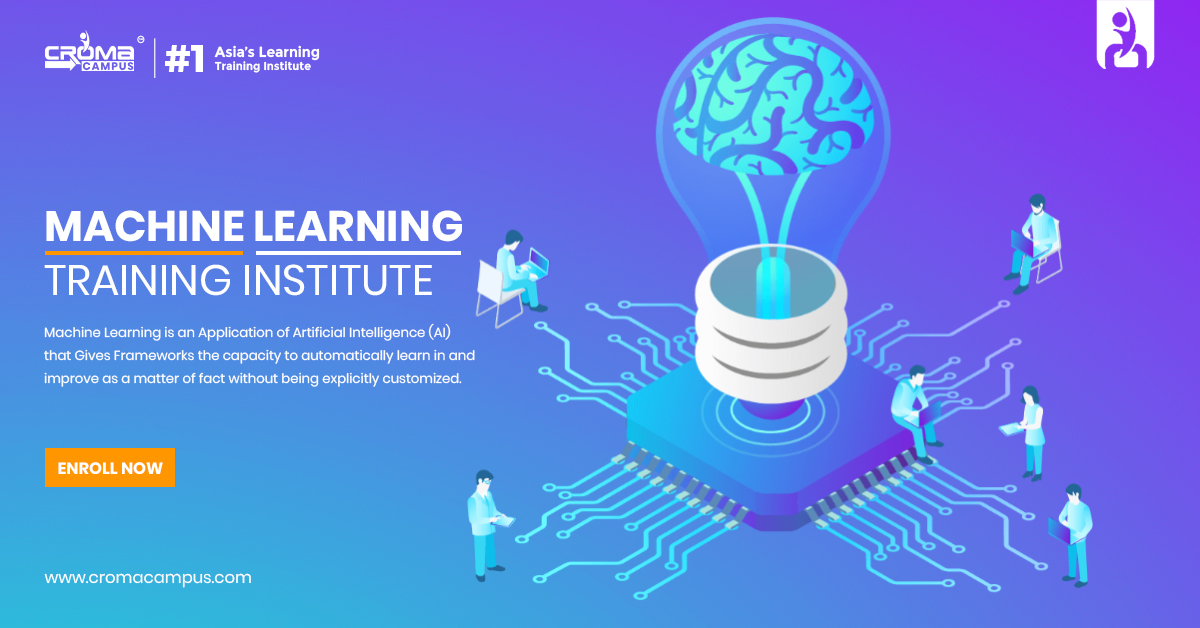Impact of Machine Learning in Manufacturing & Retail Industries

Machine Learning (ML) has made a significant impact on both the manufacturing and retail industries, revolutionizing how they operate, optimize processes, and engage with customers. This transformation has led to increased efficiency, cost savings, and enhanced customer experiences. Cities like Delhi NCR, Gurgaon, Noida, etc. are hubs of manufacturing and retail stores. These companies constantly hire skilled ML professionals to function more efficiently. Therefore, the Machine Learning Online Course has been crafted to train aspiring professionals in the latest industry-relevant techniques. Such professional training helps one boost their earning potential significantly.
In this section, we will delve into the profound impact of Machine Learning in the manufacturing and retail sectors. Read on to know more.
Impact Of Machine Learning In Manufacturing Industry
India has a huge manufacturing industry spread throughout the country. Latest technologies like ML and AI have been making drastic changes in this industry, thereby, generating large amounts of revenue.
Let us look at how ML impacts the manufacturing sector.
Quality Control And Predictive Maintenance
ML algorithms have been employed for quality control and predictive maintenance in manufacturing. By analyzing sensor data from equipment, machines can predict when maintenance is needed, reducing downtime and preventing costly breakdowns. This saves money while ensuring uninterrupted production.
Supply Chain Optimization
ML helps streamline supply chain operations. It can predict demand patterns, optimize inventory levels, and even improve route planning for logistics, ultimately reducing costs and improving efficiency.
Process Optimization
Machine Learning has been instrumental in optimizing manufacturing processes. It can analyze data from sensors and cameras to identify patterns and anomalies, leading to improvements in product quality and resource utilization. For example, in semiconductor manufacturing, ML is used to detect defects at a micro level, ensuring high-quality products.
Customization And Personalization
ML enables mass customization by learning from customer preferences and adjusting production processes accordingly. This is especially beneficial for industries like automotive, where customers can personalize their cars, and the manufacturing process adapts to these choices.
Energy Efficiency
ML algorithms can optimize energy consumption within manufacturing facilities by predicting energy demands and adjusting usage in real time. This reduces costs and contributes to environmental sustainability.
Waste Reduction
Machine Learning can minimize waste in manufacturing processes by identifying inefficiencies and suggesting improvements. For instance, it can help reduce material wastage in 3D printing by optimizing printing parameters.
Impact Of Machine Learning In Retail Industry
The Indian Retail sector covers yet another large section of the economy. Therefore, ML is integrated into this sector for more efficient retail processes.
Let us look at the impact of ML in retail.
Recommendation Systems
ML-powered recommendation engines have transformed how retailers interact with customers. By analyzing a customer’s past purchases, browsing history, and behaviours, these systems provide highly personalized product recommendations, increasing sales and customer satisfaction.
Inventory Management
Retailers use ML for inventory optimization. Predictive analytics can forecast demand accurately, reducing excess inventory and preventing stockouts. Walmart utilizes ML to optimize its supply chain, resulting in significant cost savings.
Pricing Optimization
Machine Learning algorithms can dynamically adjust prices based on various factors like demand, competition, and historical data. Airlines and hotels use dynamic pricing to maximize revenue, and retail businesses are following suit.
Customer Sentiment Analysis
Retailers monitor social media and customer reviews with sentiment analysis tools. ML algorithms can process vast amounts of text data to gauge customer sentiment, identify trends, and respond to issues promptly.
Loss Prevention
ML enhances security and loss prevention. Facial recognition and video analytics can detect suspicious behaviour, reducing theft and fraud in stores. It’s also used to combat online fraud by identifying fraudulent transactions.
Personalized Marketing
Retailers employ ML for targeted advertising. By analysing customer data, retailers can create personalized marketing campaigns, leading to higher conversion rates and improved ROI.
Customer Support
Chatbots and virtual assistants, powered by ML, provide 24/7 customer support. They can answer common questions, offer product recommendations, and assist with order tracking, improving customer service while reducing operational costs.
Foot Traffic Analysis
Retailers use ML to analyse in-store foot traffic patterns. This data helps optimize store layouts, product placements, and staffing, ultimately enhancing the customer experience.
Conclusion
Machine Learning has had a profound impact on the manufacturing and retail industries. It has improved efficiency, reduced costs, enhanced product quality, and elevated customer experiences in both sectors. The Machine Learning Course in Delhi trains professionals in the latest ML trends. As technology continues to evolve, we can expect even more innovative applications of ML, further revolutionizing these industries.




